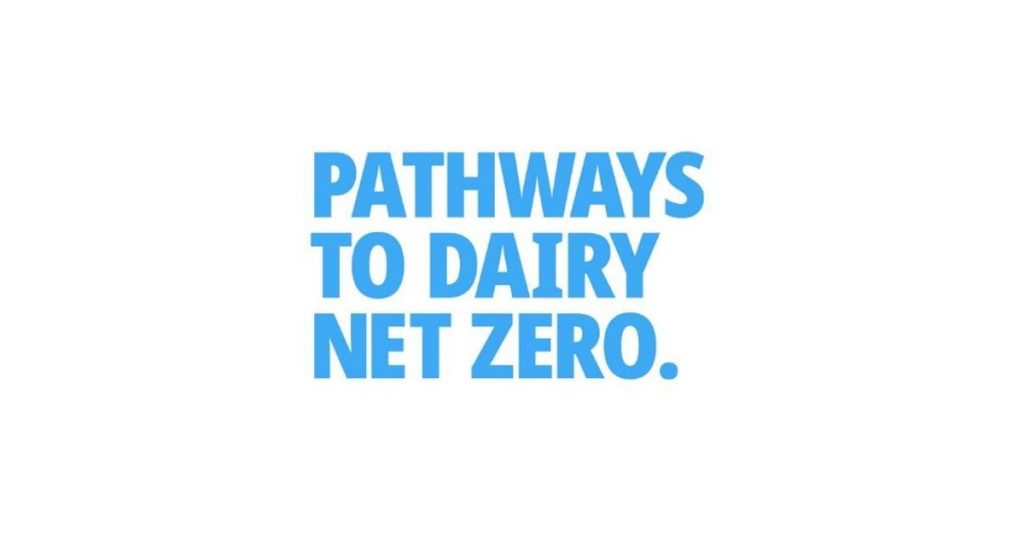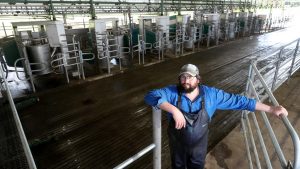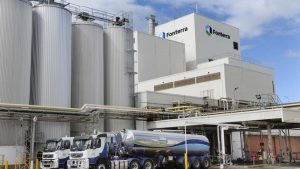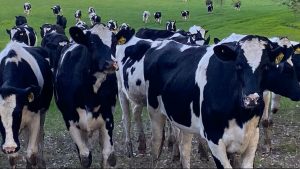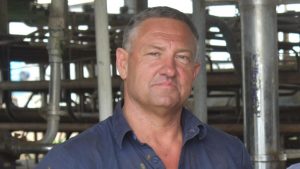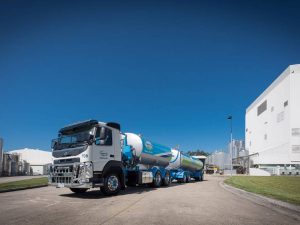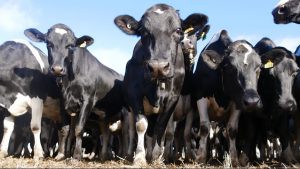
. The new initiative, which aims to accelerate climate change action and reduce greenhouse gas (GHG) emissions across the dairy sector, is already backed by organizations representing approximately 30 percent of global milk production.
. Launching today during Climate Week and just prior to the United Nations Food Systems Summit, the Pathways to Dairy Net Zero initiative is unlike any other in agriculture in terms of size, scope and ambition.
. Climate and agricultural scientists, led by the Global Research Alliance on Agricultural Greenhouse Gases, are conducting a systematic review of the science to identify current and potential mitigation options across dairy production systems.
. The entire international dairy supply chain, which produces nutritious foods for six billion people and provides for the livelihoods for one billion people worldwide, is called on to increase its climate ambition and unite behind this movement.
Pathways to Dairy Net Zero, a ground-breaking new climate initiative, is launching today during Climate Week and just prior to the United Nations (UN) Food Systems Summit. Forty leading organizations, including 11 of the 20 largest dairy companies in the world, have already declared their support for the effort. Collectively, these supporters represent approximately 30 percent of total milk production worldwide.
The new climate initiative demonstrates the global dairy sector’s commitment to reducing GHG emissions while continuing to produce nutritious foods for six billion people and provide for the livelihoods of one billion people.
“Pathways to Dairy Net Zero will accelerate climate efforts already underway and drive further necessary action to reduce dairy’s emissions over the next decades. The dairy sector has a lot to offer to lead this transition,” said Hein Schumacher, Chief Executive Officer of Royal FrieslandCampina and Chairman of Global Dairy Platform.
“Mengniu is proud to join the global dairy sector in uniting behind this effort, the first of its kind in agriculture, because we must all do our part to meet this worldwide climate challenge,” said Minfang (Jeffrey) Lu, Chief Executive Officer and Executive Director of China Mengniu Dairy Company.
The initiative is underpinned by six key principles:
1. Mitigation. Continuing to improve production and process efficiency to further reduce the GHG emissions intensity of milk and dairy products.
2. Greenhouse gas removals. Enhancing production practices that protect carbon sinks (soil, forests, grass, peatlands) and complement natural ecosystems.
3. Avoidance and adaptation. Improving practices such as feed, manure, fertilizer and energy management.
4. Insets and offsets. Identify and implement alternative, credible reduction options.
5. Measurement and monitoring. Measuring greenhouse gas emissions to plan mitigation and monitor progress.
6. Overall support. Promoting the global initiative and emphasizing the dairy sector’s climate ambition.
Identifying and Clarifying Plausible Mitigation Options
A multi-stakeholder group of organizations, including the global dairy sector and representatives from the scientific and research communities, are working together to develop science-based methodologies, tools and pathways that work for every dairy system.
Research is underway to identify where positive climate change action is possible. The study is led by Scotland’s Rural College and the New Zealand Agricultural Greenhouse Gas Research Centre, research institutions from two of the Global Research Alliance on Agricultural Greenhouse Gases’ 65 member countries, backed up by data and analysis from the UN Food and Agriculture Organization.
Initial research found that the dairy sector already has the means to reduce a significant proportion of emissions – up to 40 percent in some systems – by improving productivity and resource use efficiency.1
Researchers are identifying plausible GHG mitigation pathways for different dairy systems globally, in particular methane reduction. The latest Intergovernmental Panel on Climate Change (IPCC) report2 reaffirmed that the main GHG challenge is the reduction of carbon dioxide, which remains in the atmosphere for centuries. The report also identified reductions in methane, a potent but short-lived climate pollutant that lasts only about 12 years in the atmosphere, as an immediate opportunity to address global warming.
Organizations Already Supporting Pathways to Dairy Net Zero
The list so far includes: Nestle, Dairy Farmers of America, Danone, Fonterra Co-operative Group, Royal FrieslandCampina, Arla Foods, China Mengniu Dairy Company, Saputo, Meiji Holdings, Savencia Fromage & Dairy, Agropur Dairy Cooperative, Ace Farming Company, Agri Networking Tools, Australian Dairy Products Federation, Brazzale, Dairy Australia, Dairy Connect, Dairy Farmers of Canada, Dairy Management Inc., Dairy UK, Dutch Dairy Association, First Milk, FOSS Analytics, Glanbia, Granja Tepeyac, Innovation Center for U.S. Dairy, International Dairy Foods Association, La Vida Lactea, Land O’Lakes, Lekhanath Dairy International, Leprino Foods Company, Livestock Improvement Corporation, Megmilk Snow Brand, Morinaga Milk Industry, National Dairy Development Board (India), National Milk Producers Federation (U.S.), Palmhouse Dairies, Pioneer Natural Capital, Royal DSM, U.S. Dairy Export Council.
About Pathways to Dairy Net Zero
Pathways to Dairy Net Zero is a vibrant, growing movement, the first of its kind in the world. It brings together dairy systems of every size and type, including organizations throughout the dairy supply chain.
Partners include: Global Dairy Platform, International Dairy Federation, Sustainable Agriculture Initiative Platform, International Livestock Research Institute, Dairy Sustainability Framework and IFCN Dairy Research Network.
The Global Research Alliance on Agricultural Greenhouse Gases is a knowledge partner.
